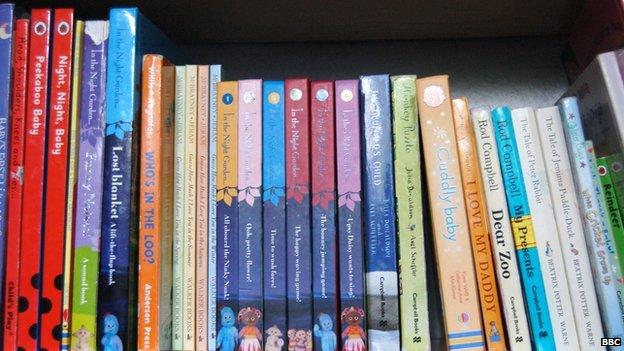Campaign aims to tackle poor reading skills early
- Published

The report said that nearly half of the lowest income households had fewer than 10 children's books
One in five children from poor families in Scotland leaves primary school unable to read well, according a group aiming to tackle poor literacy levels.
The "Read On. Get On." report said children who fell behind could feel the impact for the rest of their lives.
It said they were less likely to gain good qualifications and go on to further education.
The coalition behind the report aims to have all 11-year-olds reading well within a generation.
Organisations such as Save the Children and the Scottish Book Trust are part of the coalition. They want to see parents reading to young children for 10 minutes a day.
Their report said that 40% of families in the lowest income bracket had fewer than 10 children's books at home and fathers from these households were half as likely to read with their children at age two as fathers in the highest income households.
It said that this impacted on children later in life as those who were read to often as toddlers were more likely to become keen readers themselves.
The Read on coalition said there were 220,000 children living in poverty in Scotland and they expected this number to rise.
Neil Mathers, head of Scotland at Save the Children, said: "As a country we cannot continue with a situation where one in five poor children are not reading well at the end of primary school. It is unfair.
"We know that getting every child reading well at 11 cannot happen overnight but it is possible within a generation if we work together.
"Read On. Get On. is a mission to galvanise the nation so that parents, grandparents and volunteers play their part in teaching children to read. We want every child to be given a fair and equal chance to learn to read well, regardless of their background."
While children are still reading books, the report found that the most commonly read material by children is now text messages, with websites and e-books growing in popularity.